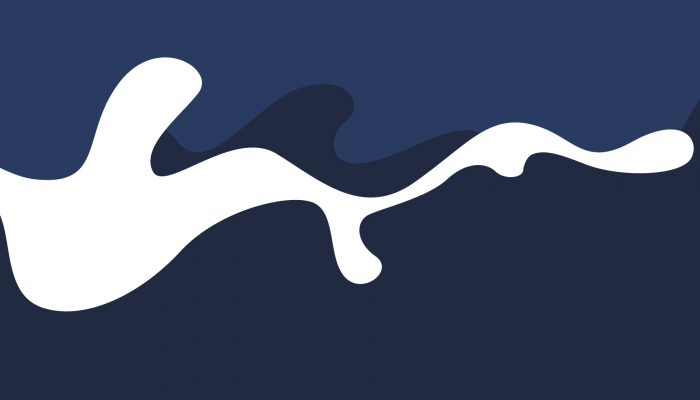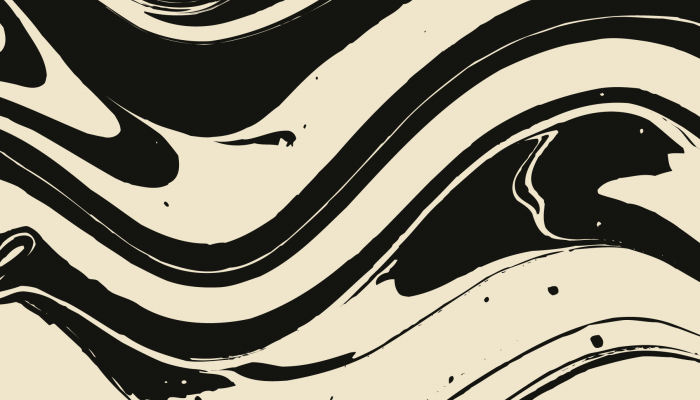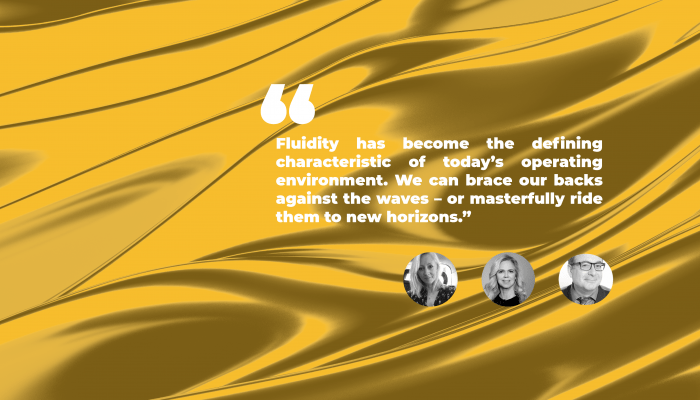COVID Continuum or COVID Interrupt-us?
With the introduction and distribution of the COVID-19 vaccines, it’s tempting to think we might be able to take our foot off the brake and begin slowly moving forward and get out of the standstill traffic we’ve been sitting in for the last year. As the reality of this sinks in, many of us will be quick to throw our masks aside, start planning reunions and book long-overdue vacations. Afterall, aren’t we all craving to get ‘back to normal’?
But all this dreaming of what we will do when we have the green light raises questions. Are there aspects of our lives that will be permanently changed for the better by the pandemic (COVID Continuum)? On the other hand, are there things we enjoyed before the pandemic that will evolve and change in ways that make our lives richer and more fulfilling than they were before the world was so harshly disrupted (COVID Interrupt-us)? And if this next phase is defined by COVID Continuum and/or COVID Interrupt-us, how do businesses and brands shift to meet the needs of customers and consumers who may not be interested in going ‘back to normal,’ but instead moving forward into a new and yet-to-be-defined era?
If COVID Continuum defines us, surely, one of the biggest changes we’ll see will be a much deeper appreciation for public health and science. Doesn’t the rise in applications to medical and nursing schools seem to signal that change? And while more students are entering the health professions, how do we reengage those students who were forced to leave school due to the pandemic? How do we enable them and others who had to step away from their careers and ensure they become part of the highly competitive and interconnected workforce that my colleague Jamie Read describes as one that “won’t operate in the ‘departments’ or ‘hierarchies’ of the past”? How do we re-imagine the office blocks as well as the coffee shops, the restaurants and the public transportation systems that have been developed to support them? What happens to the travel industry when those who built their professional currency in airports and hotels so they could spend a day in meetings in some far-flung city question the necessity of doing so now that we’ve proven how effective technology can be? And because of the hard realities that have hit the business community, how does future risk become something that not only keeps CEOs up at night, but is front and center on the radar screens of human resources, finance, senior and middle management as well as plant and production management teams?
How about COVID Interrupt-us? Yes, we may start going back to bars and restaurants, but will it be multiple times a week? Or will we mix it up a bit — curbside pick-up for batch cocktails one night, dinner delivery via a ghost kitchen another, and then maybe we’ll cook-in a few nights more than we did in 2019? For retail and delivery, how can we use robots to ensure people get what they need, but with minimal human touch and maximum safety? Before COVID-19, we were already carrying much less cash in our wallets, but as we come out of it, how will we move to cashless systems that are fair and equitable for all? And in terms of travel, will we need long excursions to experience places like Angor Wat, Machu Picchu or the Serengeti? Or can we cut down on greenhouse gas emissions and experience their wonder through VR and augmented reality?
Perhaps there is the one thing we will go back to with abandon. Grandparents seeing their grandchildren. Friends celebrating birthdays or academic achievements. Colleagues reveling in a big win. Families going through the rituals of grief and loss. If there is something the pandemic has taught us all, it’s the sheer power of humanity. As humans, we share a fundamental desire to connect and share in the common good. COVID-19 has underscored that commonality.
Whether it’s COVID Continuum, COVID Interrupt-us, or a mash-up of both, now is the time for companies and brands to reimagine the roles they play in this transformed world. Those who study the strong and weak signals that indicate where we’re headed, rethink the role they play in this transformed world and explore the actions they will take to mitigate risk will be ok. However, those who do all of those things while keeping humanity at the core and connecting us to something bigger than ourselves and our pods, will win in this new “Era of What Could Be?”


